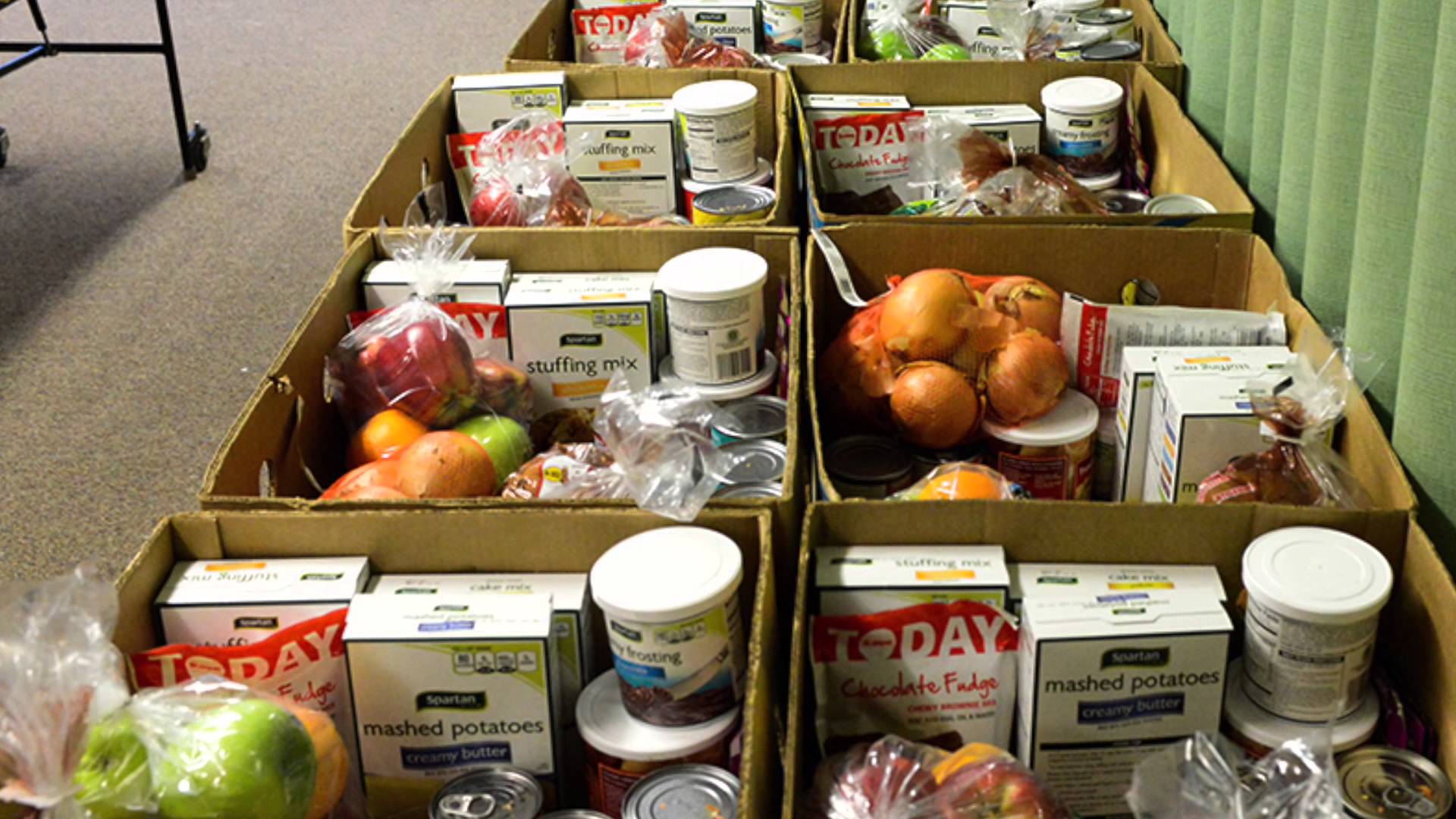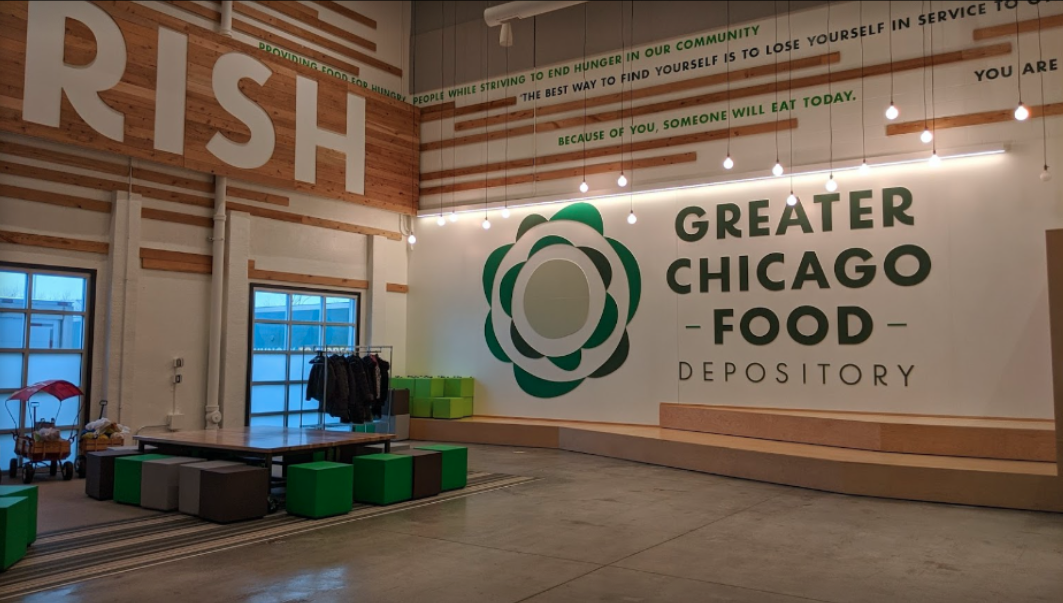BEYOND THE PANDEMIC: A CLOSER LOOK
Part 2 of a 4-Part Series
The age of COVID-19 has required the entire globe to reformulate the idea of “normal.” While many businesses have now begun the process of safely reopening their doors to the public, food banks and shelters across the country were not graced with the gift of time when deliberating how to best serve their clients during a quickly growing food crisis attributed to the global pandemic.
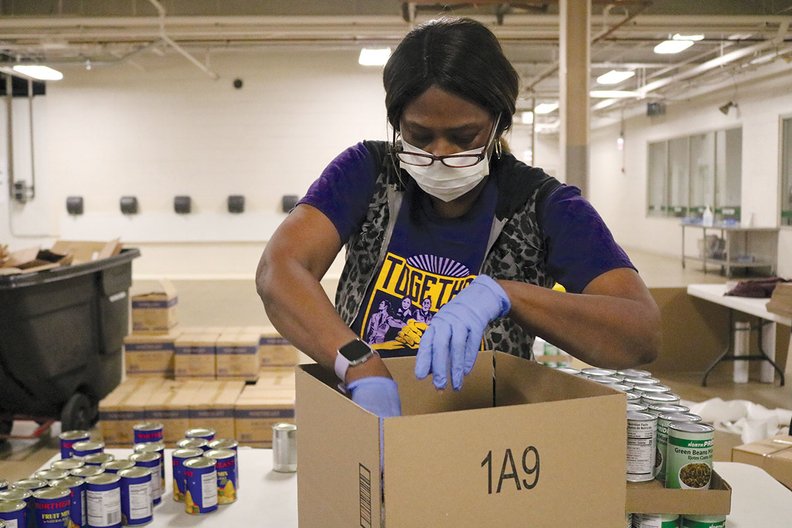
“It’s really been a difficult time for so many families,” says Greg Trotter, associate director of communications at the Greater Chicago Food Depository.
“Earlier in the pandemic, our network of food pantries was serving about 150 percent more people than pre-pandemic. That [number has] come down some, but we’re still serving significantly more people than we were before the pandemic and the need still remains extremely high.”
Prioritizing safety while maintaining, or in many cases increasing, their output of services that were in demand became the challenge that food banks and shelters faced at the start of the pandemic.
For some food shelters on the South Side, many of which were small, volunteer-driven operations, this demand was too much, resulting in food banks having to close their doors to safely avoid spread of the virus.
 Other pantries were forced to change their distribution methods from “client choice,” which operates generally the same as a traditional grocery store, allowing clients to select their own procurements for their needs, to providing the more traditional pre-packed boxes of supplies for distribution, thus reducing the risk of coronavirus transmission.
Other pantries were forced to change their distribution methods from “client choice,” which operates generally the same as a traditional grocery store, allowing clients to select their own procurements for their needs, to providing the more traditional pre-packed boxes of supplies for distribution, thus reducing the risk of coronavirus transmission.
With the mission to provide “housing, health care, and human connection” to Chicagoans largely on the South and West sides struggling with poverty and homelessness, The Night Ministry offers several outreach programs providing services in these areas, all of which had to undergo substantial changes in protocols to ensure the safety of staff, volunteers, and clients alike, at the onset of the pandemic.
“The impact of COVID-19 has varied greatly, but what we’ve seen among clients is greater food insecurity with people losing work or their jobs, and for people who rely on panhandling down-
town less foot traffic [means] their revenue, the money people are taking in, has been diminished,” explained Burke Patten, communications manager at The Night Ministry, adding, “especially early on in the pandemic we were seeing a greater demand for food from the folks that we serve.”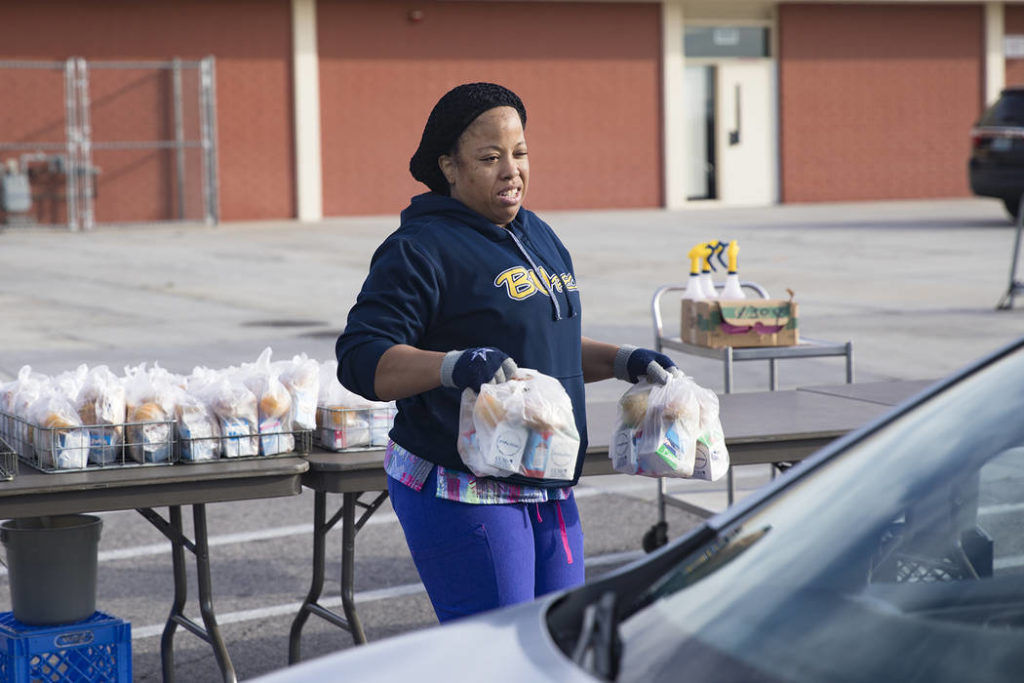
In the case of the Ministry’s Health Outreach Bus, which takes health care directly into Woodlawn, Austin, Great-
er Grand Crossing and Lawndale, serving as a mobile doctor’s office equipped with a nurse practitioner while also providing food, case management services, and other necessities, new protocols were established at the start of the pandemic.
Clients were unable to receive care on the Outreach Bus. Rather, to maintain social distancing, services were administered outside.
Volunteers, some of whom helped supply homemade meals to those in need, were also barred from offering their assistance during this time to curb the spread of the virus. During this time food was still served as “sack suppers,” standard issue pre-packed quick meals, rather than ready-to-serve hot meals.
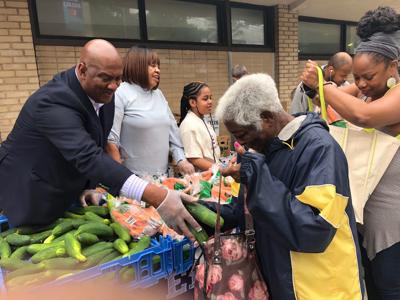 A year later, as vaccination rates are on the rise, “normal” seems to be on the horizon.
A year later, as vaccination rates are on the rise, “normal” seems to be on the horizon.
Once again, The Night Ministry has resumed service on the Health Outreach Bus, a temporary refuge for those in need of care. Volunteer activities have also resumed, as well as the organization’s ability to provide meals, though the pre-packaged requirement still stands. The agency is intent on doing whatever it takes to ensure the wellbeing of South Side community members.
How different this new normal will be has yet to be determined, but as long as there is a need for assistance, volunteers across Chicago are prepared to rise to the challenge to assist those in need.
Thanks to the generosity of funding provided by The Field Foundation of Illinois, Inc. in producing this article.
